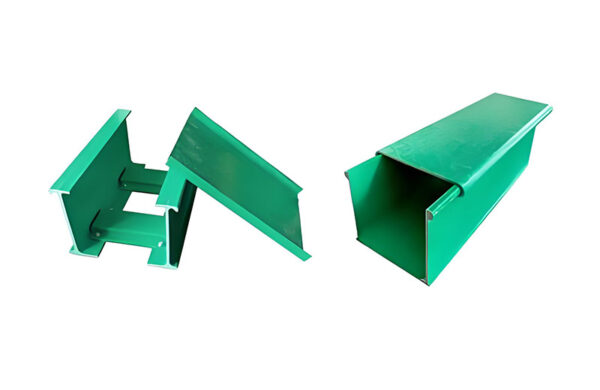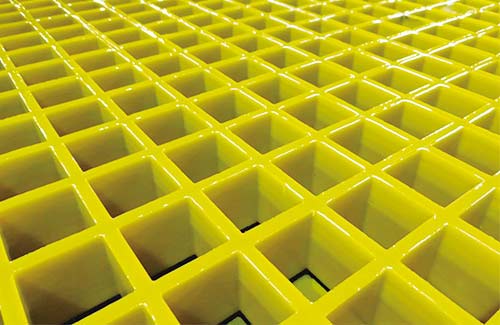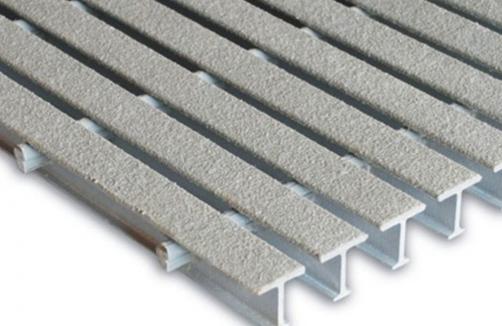Exploring the Strength and Versatility of Phenolic Resin Grating in Industrial Applications
Phenolic resin grating has become a cornerstone in industrial applications due to its exceptional strength, durability, and versatility. But what exactly makes this material stand out? How does it compare to traditional materials like steel or aluminum grating? And what are the specific industrial applications where phenolic resin grating excels? This article delves into these questions, offering insights into why phenolic resin grating is a preferred choice for many industries.
What Is Phenolic Resin Grating?

Phenolic resin grating is a type of engineered composite material made from a combination of fiberglass and a phenolic resin matrix. This unique composition results in a material that is both strong and lightweight, making it ideal for a wide range of industrial applications. Unlike traditional materials, phenolic resin grating does not rust, corrode, or conduct electricity, which adds to its appeal in various environments.
The Strength of Phenolic Resin Grating
One of the primary reasons phenolic resin grating is favored in industrial settings is its incredible strength. The fiberglass fibers provide high tensile strength, while the phenolic resin acts as a binder, ensuring the material can withstand heavy loads and harsh conditions. This makes it particularly suitable for use in areas where traditional grating materials might fail.
For example, in chemical plants, phenolic resin grating can handle corrosive substances without degrading, unlike steel grating which might rust or corrode over time. Similarly, in electrical facilities, the non-conductive nature of phenolic resin grating prevents short circuits, making it a safer option compared to metal grating.
Versatility in Industrial Applications
The versatility of phenolic resin grating is another key factor contributing to its widespread use. It can be manufactured in various shapes, sizes, and load capacities, making it adaptable to different industrial needs. Whether it’s for walkways, platforms, or mezzanines, phenolic resin grating can be customized to fit specific requirements.
Additionally, phenolic resin grating is easy to install and maintain. Unlike metal grating, it doesn’t require painting or coatings to protect it from the elements. This not only reduces maintenance costs but also ensures a consistent appearance over time.
Comparing Phenolic Resin Grating to Traditional Materials
When comparing phenolic resin grating to traditional materials like steel and aluminum, several advantages become apparent. Steel grating, while strong, can rust and require regular maintenance. Aluminum grating, on the other hand, is lightweight but less durable and more prone to bending under heavy loads.
Phenolic resin grating offers a middle ground, providing the strength of steel without the corrosion issues and the weight advantages of aluminum without the reduced durability. This makes it a more cost-effective and reliable option in the long run.
Industrial Applications Where Phenolic Resin Grating Excels
Phenolic resin grating is particularly well-suited for the following industrial applications:
- Chemical Plants: Its resistance to corrosive substances makes it ideal for environments where chemicals are present.
- Electrical Facilities: The non-conductive nature of phenolic resin grating prevents electrical hazards, making it a safer choice for electrical installations.
- Petrochemical Industries: The material can withstand high temperatures and harsh chemicals, making it suitable for petrochemical processing areas.
- Marine Environments: Unlike metal grating, phenolic resin grating does not rust, making it a durable option for shipyards and marine facilities.
- Food and Beverage Plants: Its non-toxic properties and easy-to-clean surface make it ideal for food processing areas.
Sharing Insights and Best Practices
When incorporating phenolic resin grating into industrial applications, it’s essential to follow best practices to ensure optimal performance. Proper installation is crucial, as it involves ensuring the grating is level and securely fastened. Additionally, regular inspections can help identify any wear or damage, allowing for timely maintenance.
Sharing insights and experiences with other industry professionals can also be beneficial. For instance, case studies from similar applications can provide valuable information on design considerations and potential challenges. Collaborating with manufacturers who specialize in phenolic resin grating can also help in optimizing the material’s use for specific industrial needs.
Conclusión
Phenolic resin grating offers a combination of strength, durability, and versatility that makes it an excellent choice for various industrial applications. Its resistance to corrosion, non-conductive properties, and ease of maintenance set it apart from traditional materials like steel and aluminum grating. By understanding its benefits and best practices for implementation, industries can leverage phenolic resin grating to enhance safety, efficiency, and longevity in their operations.







